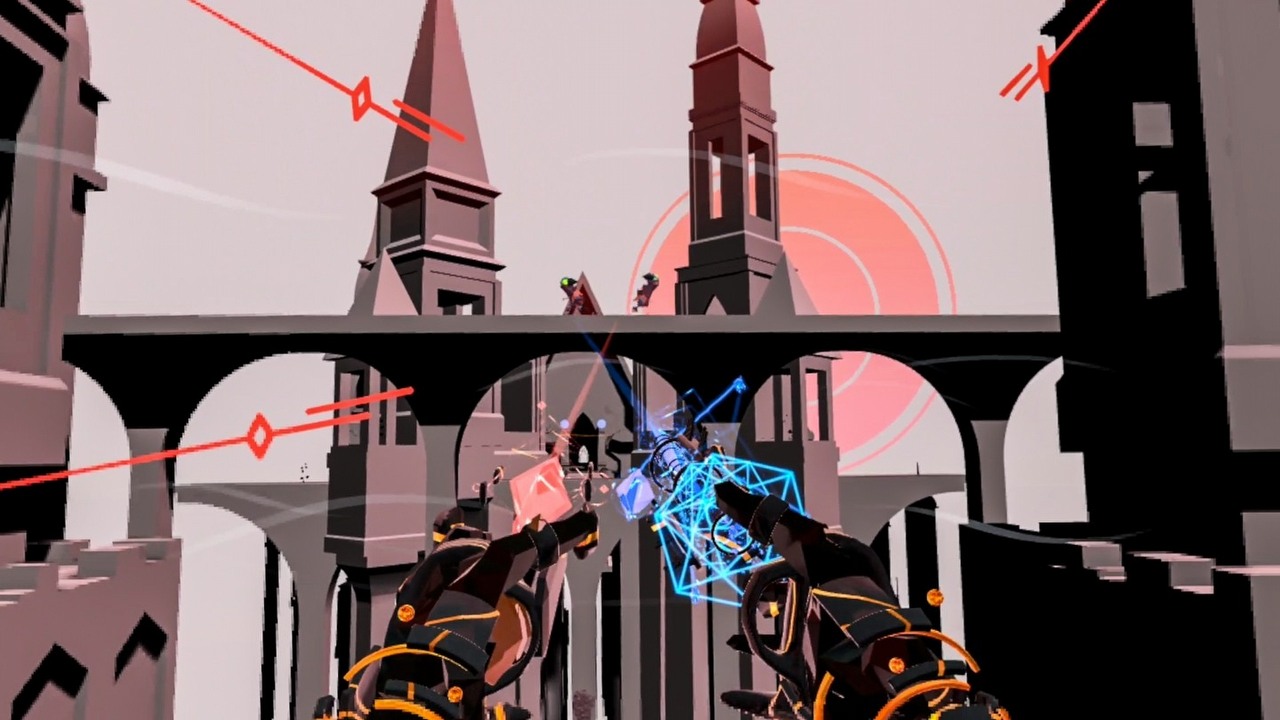Video Games in Medicine Could Spark a New „Golden Age” for the Industry
Deepwell has already gained approval from the U.S. FDA for the use of „video games and interactive media” to treat mental disorders.

Video games are already used as an educational tool, but their use in medicine is less often heard of. Meanwhile, DeepWell has obtained approval from the US Food and Drug Administration (FDA) for a project utilizing "games and interactive media" in the treatment of mental disorders.
The idea is simple: using video games available over-the-counter in a medicinal form to reduce stress and as a form of adjunctive treatment in case of high blood pressure.
Shooting zen
The proof of concept was supposed to be Zengence: Take Aim with Every Breath – a VR game that the developers describe as a "mental health action shooter." In this one, we shoot at "ghosts" using magical (?) rays, using a microphone for this purpose.
No, the game doesn't recognize voice commands. Instead, as the subtitle suggests, we shoot by using breaths or other "meditative" sounds. In this way, we practice breathing in stressful situations, preferably within 15-minute sessions 3 times a week.
The choice of an FPS as a "healing" game may seem odd - after all, titles from this genre are often cited as the main example of games promoting violence (alongside the GTA series). However, Ryan Douglas (co-founder of DeepWell) claims that, paradoxically, research points to action games as the most stress-relieving type of video game (via PC Gamer).
Moreover, strong involvement in a given title makes us learn much faster, and it's hard to find anything more engaging than a video game.
It turns out, when we're heavily engaged in play, we learn at a highly accelerated rate. So we want to get people into environments where they're having a lot of fun, they're having a lot of flow, and that gives us the opportunity to do something called consolidation of memory, or to get you building new neural pathways. And as a result of that, you can literally adopt new thoughts and ideas about yourself, but you can also adopt things more limbically, like something that would respond to your autonomic nervous system. You get a trigger, and you behave differently than you did before, because you have a new neurological pathway that's become preferred over time.
Trillions of dollars and a golden era of games
After obtaining FDA approval, Douglas' company aims to obtain "codes" from Medicaid and Medicare and introduce "monetary incentives" for companies, doctors, and patients to develop, recommend, and utilize DeepWell's games. In other words, such special games would be prescribed as part of the treatment for mental disorders (in the future also those related to anxiety and depression, among others).
Ryan Douglas doesn't see this as just a medical revolution. The founder of DeepWell points out that numerous modern games can have a beneficial effect on patients without incorporating "biofeedback," as seen in Zengence.
In his opinion, similar software developed without the expertise of game developers is much less effective as a therapeutic tool than many commercial games. So, Douglas speculates, developers could "gain access" to the resources of the "healthcare economy" (which, as PC Gamer writes, is trillions of dollars), which could usher in another "golden age of video games."
Furthermore, he suggests that video games would be a "treatment" that patients would use voluntarily.
0

Author: Jacob Blazewicz
Graduated with a master's degree in Polish Studies from the University of Warsaw with a thesis dedicated to this very subject. Started his adventure with gamepressure.com in 2015, writing in the Newsroom and later also in the film and technology sections (also contributed to the Encyclopedia). Interested in video games (and not only video games) for years. He began with platform games and, to this day, remains a big fan of them (including Metroidvania). Also shows interest in card games (including paper), fighting games, soulslikes, and basically everything about games as such. Marvels at pixelated characters from games dating back to the time of the Game Boy (if not older).
Latest News
- End of remote work and 60 hours a week. Demo of Naughty Dog's new game was born amid a crunch atmosphere
- She's the new Lara Croft, but she still lives in fear. Trauma after Perfect Dark changed the actress' approach to the industry
- „A lot has become lost in translation.” Swen Vincke suggests that the scandal surrounding Divinity is a big misunderstanding
- Stuck in development limbo for years, ARK 2 is now planned for 2028
- Few people know about it, but it's an RPG mixing Dark Souls and NieR that has received excellent reviews on Steam, and its first DLC will be released soon

